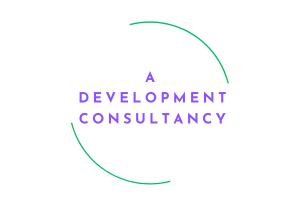Interview about mental health and wellbeing at work with Natalie Chotai
Continuing with our series of interviews with some of our team here at People Business, let’s introduce Natalie Chotai. Natalie’s one of our HR consultants and has over 25 years HR experience in house with organisations and as a consultant.
 With a degree in Psychology and Sociology, and MCIPD and Chartered Membership of the CIPD, Natalie is also a qualified Mental Health First Aider and leads on mental health and wellbeing for People Business. She also recently became a new Trustee for the charity Give Surrey.
With a degree in Psychology and Sociology, and MCIPD and Chartered Membership of the CIPD, Natalie is also a qualified Mental Health First Aider and leads on mental health and wellbeing for People Business. She also recently became a new Trustee for the charity Give Surrey.
Natalie, you’re an experienced HR consultant working with clients on projects and their day-to-day requirements – why the particular interest in mental health and wellbeing in the workplace?
When I started in HR, the focus was more on the management of absence due to physical ill health and supporting employees to return to work. Wellbeing issues tended to be addressed more reactively, dealing with problems as they arose.
Mental health is now recognised as being as important as physical health – the shift has been to a more holistic one focusing on the overall health of employees – the physical, emotional, financial and mental wellbeing – which enables employees to show up and do their best at work.
HR professionals take a much more proactive approach to wellbeing, with a focus on positive mental health interventions and providing resources to encourage wellbeing, as well as providing ways to support employees with problems as and when they arise.
It is accepted that prioritising mental health and wellbeing at work benefits organisations too. Good mental health fosters increased productivity, employee engagement and commitment, reduces absenteeism, and contributes to better teamworking. It also helps organisations to attract and retain talent.
A mentally healthy workforce supports and enables an organisation’s long-term success and sustainability – organisations have realised that employee wellbeing directly impacts the bottom line which leads to a strong business case for making employee wellbeing a priority.
Over your career have you noticed an increased awareness of mental health and wellbeing in the workplace, and can you recall any trigger points that brought issues to the fore?
There is constant change and uncertainty in the workplace – people are working in fast-paced environments, coping with new technology, changing roles, managing high workloads etc. This is contrary to our innate preference for safety and certainty. Lots of unreliability and change can cause people to feel anxious and unsettled.
The pandemic brought all this into sharp focus, and people and organisations quickly had to adapt to new and more flexible ways of working, or they may have been furloughed or made redundant. On top of this, they could have been dealing with isolation, bereavement, stress, depression, anxiety, and financial difficulties. It caused a further deterioration in our mental health and wellbeing.
In addition, there has also been an increase in what is called ‘leavism’ – where people feel unable to switch off from work and take a break, and instead do work outside of office hours, take holiday instead of calling in sick, or use their holiday to catch up on work backlog. With people still working in a hybrid model since the pandemic, it’s important that organisations reset the culture and expectations about working hours and availability. It’s so important for your mental health. wellbeing and productivity to really switch off and take a break to relax completely.
This has meant that workplaces have had to take a good look at their working practices. There is now more emphasis on work life balance, and the need to take time off. Flexible working and remote working have become more common. There has also been an increased focus on creating inclusive workplaces where all employees feel valued and supported, and legal developments to address issues relating to discrimination, bias and harassment.
Furthermore, organisations increasingly seek feedback from employees to understand their needs, so we have real data on which to base decisions. There has also been growing research into the impact of workplace culture on employee wellbeing. For example, Millennials and Gen Z workers tend to have different workplace expectations and will prioritise work-life balance and wellbeing when entering the workforce.
Overall, there hasn’t been one single trigger point, but a culmination of various factors up to and including the pandemic. HR has evolved in its approach to mental health and wellbeing at work to align with all these factors.
Within an organisation whose responsibility would you say it is to focus on the mental health and wellbeing of their people?
It’s everyone’s responsibility. Senior management need to lead from the top and ensure that staff feel able to bring their whole selves to work. Those that are people managers should know their team well enough to spot the signs that may be of concern and initiate conversations with them, and the workforce as a whole should look out for each other and be comfortable raising concerns with the employee directly or alternatively bring it to a manager’s attention.
We all have our own challenges outside of work, but when it tips the balance and people are showing signs that they are no longer coping with their challenges, they should feel safe and protected bringing this up at work.
How can an organisation go about understanding the challenges their employees face and raising awareness of wellbeing?
I think organisations generally have good intentions and a desire to support their employees, but don’t know where to start. I’d suggest a good starting place is to encourage an open culture where people feel able to speak about mental health without stigma and making wellbeing part of that everyday culture. For example, have visual material up, share articles, ask people how they are doing etc. Ensure it is something that people are comfortable talking about.
Then consider where you are with your wellbeing practices and identify some small steps you can take to improve. We’ve developed a WorkWell Wellbeing Review to use with our clients, which helps them to identify where they are on a progressive wellbeing model, and we work with them on a bespoke wellbeing programme to help them move in the right direction.
If an organisation wants to focus more on the mental health and wellbeing of their people and to offer support, how should they go about this? Are there any ‘quick wins’ that will start the process off?
Start by having a clear strategy for managing mental health and make mental wellbeing part of everyday discussions in the workplace, to normalise it, and make it OK to talk about.
I think it’s a two-pronged approach about identifying both preventative and proactive interventions in the workplace. For example, providing an open workplace environment where there is no stigma and wellbeing is discussed openly may enable staff to feel more able to share their challenges. And a more proactive action may be to set up an Employee Assistance Programme or some wellbeing benefits which staff can turn to if they already have challenges.
However, if you want a more targeted approach to your own specific organisational wellbeing challenges, I recommend a formal wellbeing review which will help you to invest in improving the right areas, rather than just implementing initiatives which may not be needed.
Do individuals have a responsibility to themselves, or is there more expectation, or even legal requirement, now on an organisation to have wellbeing policies in place for their employees?
There is currently no specific legal requirement in the UK to have a wellbeing policy. However, there are legal obligations to the employees’ health, safety and wellbeing via the Health and Safety at Work Act 1974, which gives employers the responsibility to manage workplace stress. There are also legal protections that prohibit discrimination on the grounds of disability and mental health.
These strongly suggest a need for employers to address wellbeing issues that could impact employees’ health, safety and treatment at work.
But even though there is no direct legal requirement to do so, most organisations we work with are choosing to develop and implement these policies and practices reflecting a commitment to employee wellbeing and to creating a healthier and more productive work environment.
Organisations are commonly investing in the skills development of their managers by including wellbeing awareness to the suite of soft skills they expect their managers to demonstrate. They are providing mental health awareness training to their managers, so they are better equipped to deal with challenges. It is not a manager’s job to be a counsellor or to provide a diagnosis, it’s about encouraging their people to speak, knowing that they won’t be judged. It’s about listening and helping them to come up with possible solutions, by directing them to relevant sources of support such as a GP or talking therapy. Or it may be as simple as making workload adjustments or giving them some time off to deal with some personal issues.
What about smaller businesses who may not have the resources to provide a suite of wellbeing benefits and training, what can they do?
Mental health interventions do not have to cost a lot of money. Overall, it’s about talking, encouraging an open culture and reducing stigma. Some suggestions I can offer on shifting the focus to mental health and wellbeing at work include:
- Your managers and team leaders could organise regular wellbeing catch-ups with their team members to chat about how they are doing, rather than sticking to task-focused chats.
- Do what you can to encourage good healthy working practices to support an open culture. For example, during the pandemic people were not using their holiday allowances as they couldn’t travel, but time off away from work is so important. Keep an eye on annual leave booking to ensure that your people are taking the time away from work to relax.
- Make sure people feel able to manage their workloads, are able to ask questions and give feedback.
- Educate your people to understand what good mental health is and how it can be affected, and to recognise the signs in themselves and others.
- Encourage your people to adopt practical tools and strategies they can use to look after their wellbeing, as well as to know where they can go for further help.
- Encourage your line managers to have regular wellbeing conversations, know how to build trust, to listen empathetically, and signpost for further support.
- Look at employee wellbeing events in the calendar. World Mental Health Day is on 10th October and focuses on raising awareness of mental health and driving positive change. Consider doing your events, training, promotion around the day.
- Put wellbeing resources up visually in the workplace and/or on your intranet.
It’s about establishing good wellbeing habits, and leaders demonstrating the values that they want the rest of the organisation to demonstrate and uphold.
What if people don’t want to talk?
This is common – people who have time off for mental health and wellbeing reasons will often give another reason for their absence or will book a day’s holiday instead. They feel more able to say they have a cold or a stomach bug, than to say they are feeling anxious or depressed. And as humans, we tend to feel the need to show a ‘stiff upper lip’ and soldier on regardless, hoping things will get better.
In these cases where employees are unlikely to speak up, it is even more important that managers are trained to spot the signs and know how to approach them in a sensitive way…. have they changed their interactions with colleagues or stopped responding to emails? Are they withdrawn in meetings? Or has the quality of their work reduced? Use your observations to sensitively initiate a supportive wellbeing conversation with them.
Have you learnt anything about yourself and the way you approach your job after the focused work on People Business’s WorkWell wellbeing programme that you have been helping to develop?
I’ve learnt that whilst I have always coached and supported organisations and employees with advice and guidance, wellbeing conversations require more sensitive management. Completing the Mental Health First Aid (MHFA) qualification has given me increased confidence about the right way to approach these more sensitive conversations in order to help the employee move forward.
I’ve also learnt that managers often worry that mental health issues are scarier to deal with than other issues, or they may cause an employee to be more emotional, and that they won’t know what to say. But it’s much better to say something than nothing at all. In most cases, the employee will appreciate the opportunity to open up and talk about their issues.
At People Business we can help your organisation with your wellbeing strategy or programme, and help you to identify areas of concern and how to remedy them. If you would like to know more about our WorkWell wellbeing programme, simply get in touch and one of our specialist team would be happy to chat with you.




